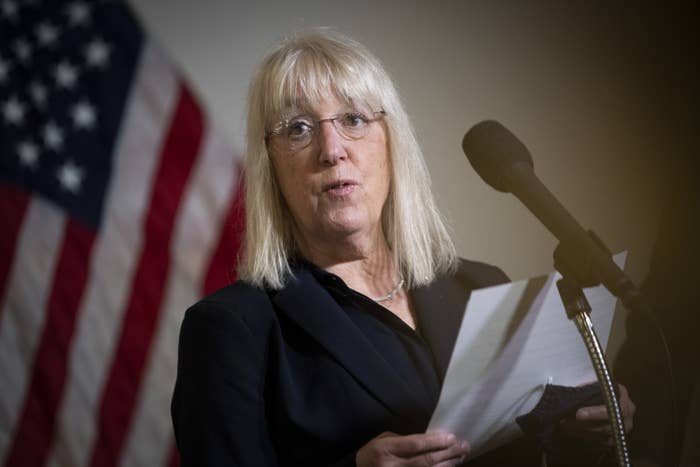
WASHINGTON — As the rate of women in the workforce hits the lowest point in decades, a senior Senate Democrat says her party is planning a major push to enact universal paid parental and medical leave nationwide for the first time later this year.
“This is a top priority for me, it’s a top priority for the White House, and it’s a top priority for our Democratic caucus,” Senate Health Committee Chair Patty Murray told BuzzFeed News in an interview.
Murray said the plan is to use budget reconciliation, a Senate procedure that allows the Democrats’ razor-thin 50-seat majority to pass legislation without any Republican votes. Murray said there currently is no path forward for a bipartisan bill that would need to pass the Senate’s usual 60-vote threshold. “As of now, there are not 10 Republicans who are willing to step up to the plate,” she said.
How generous the Democratic parental leave program will be is yet to be determined. They will likely try to get close to President Joe Biden’s election platform of giving 12 weeks of paid parental leave to all new parents. Under his plan, the federal government would subsidize up to $4,000 per month, replacing up to two-thirds of a person’s average weekly salary, or up to 80% of salary for the lowest-wage workers.
But the Senate’s budget reconciliation process requires legislation to be budget neutral, so the more comprehensive the aid, the more revenue must be generated to pay for it.
Murray is touting the program as not just a social program but an economic one. A study released Friday by the National Partnership for Women and Families found that not having family support policies like paid parental and medical leave costs the United States economy $650 billion annually because of women who have to drop out of the workforce over childcare.
Democrats hope to pass a budget reconciliation bill this fall that includes many of their top priorities, but they have zero margin for error because every single Democrat in the Senate will need to be onboard. Sen. Kyrsten Sinema, a Democrat from Arizona, already began to raise concerns this week about the cost of the bill. Even a single Democrat balking at the size of the reconciliation bill would jeopardize the plan, though Murray said her caucus is united on parental and medical leave.
“Every one of us is hearing the same thing I am, from people who don’t have childcare and can’t get back in the workforce, from people who can’t even apply for jobs because they don’t have childcare,” she said.
The US is the only major developed nation that does not mandate any maternity or paternity leave for its citizens. The National Partnership for Women and Families study compared the workforce participation rate of women ages 25 to 54 in the US to Canada, Germany, and the United Kingdom — all countries with paid parental and medical leave.
They concluded that if the US performed like other developed countries, there would be 4.85 million more women in the workforce, leading to an added $237 billion in wages per year and $650 billion in economic output.
The pandemic hit women particularly hard, as their share of the labor force shrunk over the past year. They’ve also lagged behind men in getting new jobs as the economy recovered. At the beginning of the year, women’s labor force participation hit a 33-year low.
“This report shows that not having these policies cost us $650 billion annually. That’s more in one year than we expect to pay in a national family and medical leave program in 10 years. Literally, it pays for itself,” said Lelaine Bigelow, the Partnership’s interim vice president for congressional relations and economic justice.
Bigelow said having that number is important as activists try to pull Congress’s focus away from just “hard infrastructure” projects, like roads and bridges, toward including social programs for workers.
Democrats also want to include a childcare program in the reconciliation bill that subsidizes daycare costs to cap them at 7% of the median income within each state. Since taking control of Congress in early 2020, Democrats have seen hoped-for policies diluted or, as in the case of a $15 federal minimum wage, stripped from the reconciliation process altogether.
Bigelow said that activists are preparing a campaign to keep the pressure on and ensure a paid family leave program makes it into the final reconciliation bill text. “As negotiations continue, lawmakers looking for quick cuts should understand that not implementing a national paid family and medical leave policy costs our economy even more than the program's bill,” she said.

